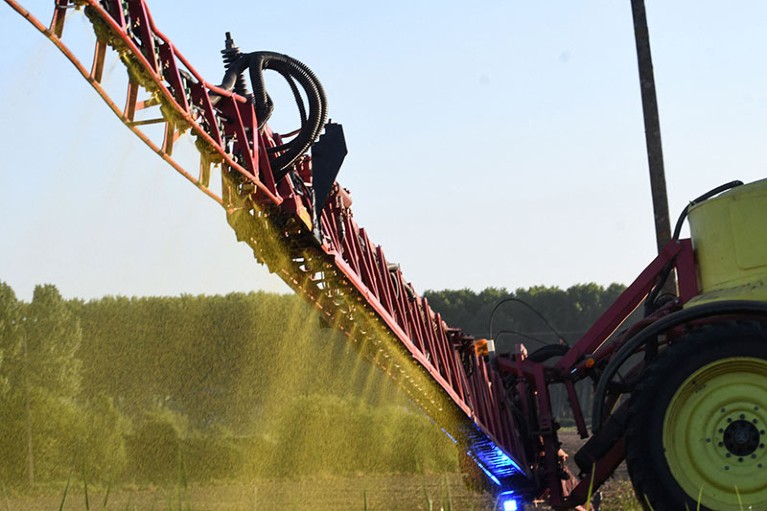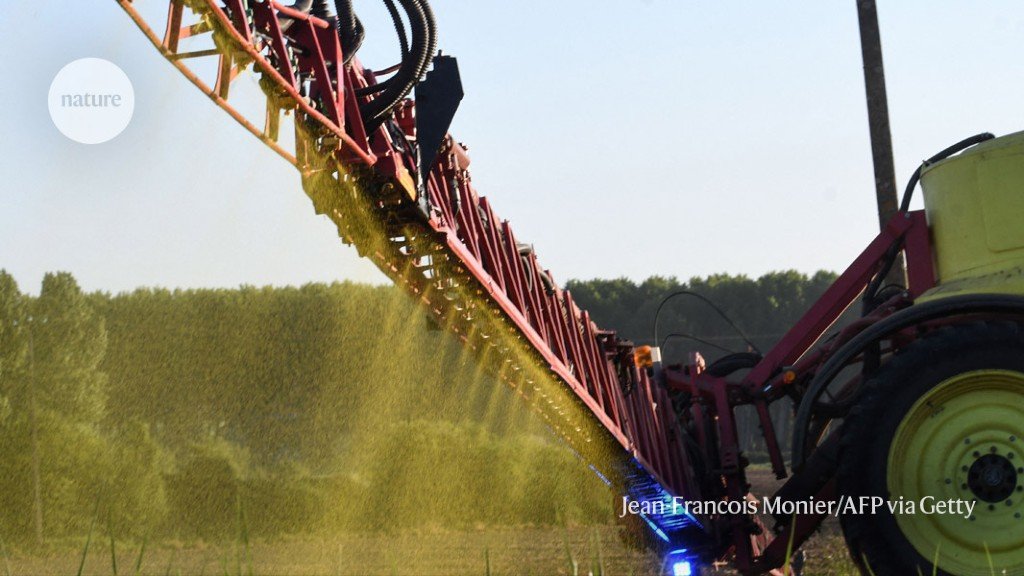
Glyphosate is widely used in agriculture to eliminate weeds.Credit: Jean-Francois Monier/AFP via Getty
After months of wrangling, the European Commission says it has decided to renew the license for the weedkiller compound glyphosate, approving its use in European Union countries for ten more years.
Following the decision yesterday, the Commission released a statement saying that, on the basis of comprehensive safety assessments carried out by the European Food Safety Authority (EFSA) and the European Chemicals Agency (ECHA), it would renew the licence, “subject to certain new conditions and restrictions”.
These include a ban on the use of the chemical to dry crops before harvest, and “the need for certain measures to protect non-target organisms”. Governments can still restrict the use of glyphosate in their own countries if they consider the risks too high, particularly in regard to the need to protect biodiversity, the statement added.
Safety debate
Glyphosate is the active ingredient in Roundup, the world’s most widely used herbicide. Over the years, a debate has developed about whether the chemical is safe to use on food crops, as well as its possible environmental impacts. Some studies point to a link between glyphosate and certain cancers1; others suggest that the way in which it is used should not harm consumers2. Glyphosate has been investigated extensively by food- and chemicals-safety agencies, but disagreements among researchers remain.
The license allowing glyphosate’s use in the EU was last renewed for five years in 2017. Ahead of the authorization’s expiry in last December, the European Union temporarily extended it for another year to allow the EFSA to assess some 2,400 studies about the compound and to make a recommendation to governments.
The Commission’s proposal to extend the license for ten years failed to gain a majority of votes from member states either in favour or against (a decision has to be carried by a qualified majority, or at least 15 of the 27 countries representing 65% of the total EU population). This left the Commission obliged to make the decision itself before the current approval period ran out on 15 December.
The EFSA released the results of its investigation in July, saying that it “did not identify critical areas of concern” concerning the health of humans and animals or the environment. But it added it could not assess some factors, including the safety of one particular impurity in glyphosate and the risk to aquatic plants.
Last year, the ECHA’s assessment concluded that glyphosate did not meet the scientific criteria to be classified as carcinogenic; as something that can cause changes in DNA; or as harmful to fertility or the health of offspring. But the organization maintained its warnings that the product can cause serious eye damage and is toxic to aquatic life.
Mixed reaction
Robin Mesnage, a toxicologist at King’s College London, welcomes the Commission’s decision to continue to allow the use of glyphosate. He says that the compound can be dangerous to farmers and other users if they do not protect themselves when spraying crops or weeds, but he does not think that it poses a risk to consumers. “There are too many conflicting studies on the product, some of poor quality,” he says, adding that some assessments “ignore the big picture”. He adds that if glyphosate were to be banned, the chemicals used to replace it could potentially be more toxic and could increase the cost of food production.
Others have expressed disappointment. “It is unacceptable that the Commission still plans to go ahead with its proposal, considering the amount of scientific evidence of the substance’s health impacts,” says Natacha Cingotti, a campaigner at the Health and Environment Alliance, a non-governmental organization in Brussels. “While we can’t undo the decades of exposure, the Commission can still seize the opportunity to turn the tide towards more sustainable agricultural practices.”



